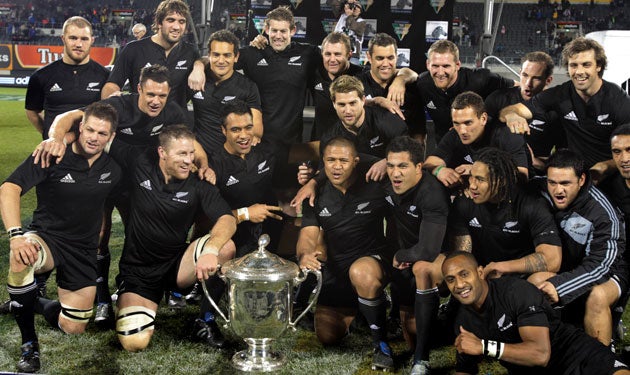Unstoppable All Blacks find rule changes to their liking

This year's new law interpretations perfectly suit the style of play the All Blacks set in motion on their 2009 tour of Europe, New Zealand assistant coach Wayne Smith said yesterday.
There is a now a greater emphasis on tacklers not being allowed to play the ball, stricter policing of players being in front of the kicker and tightening up on players obstructing during the formation of rolling mauls.
The All Blacks lost all three Tri- Nations Tests they played against the Springboks last year, succumbing to the South Africans' territory-based kicking game and a strong chase to close down any counter-attack.
Smith said yesterday that they had decided to play a more expansive, ball-in-hand game against France in Marseilles last November, because they felt that was the direction in which the game would be heading. The All Blacks ran in five tries in a 39-12 win.
"We were swimming against the tide in last year's Tri-Nations because we were trying to play with the ball in hand because that's what inspires our players, that's what motivates them, while the kick-chase does not. But we were not helped by the laws last year and our skills also let us down," said Smith.
"But I'll say Marseilles was the watershed for us because it showed it was possible to use that style of play. It's a great way to play footy and it set us up for this year when the laws did change. We made the assumption that the game couldn't continue the way it was going because it was losing its fan base and it wasn't great to watch."
New Zealand, with four straight wins in this year's Tri-Nations, play South Africa on 21 August in Johannesburg.
Join our commenting forum
Join thought-provoking conversations, follow other Independent readers and see their replies
Comments
Bookmark popover
Removed from bookmarks